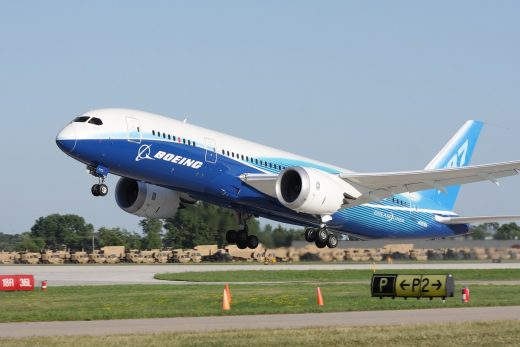Boeing wants all its aircraft to fly on sustainable fuels by 2030
Boeing has vowed to make flights using its planes more eco-friendly within the next decade: The aviation titan has announced its commitment to make sure its planes can fly on 100 percent sustainable fuels by 2030. It explained that making the shift to sustainable fuels is the “safest and most measurable solution to reduce aviation carbon emissions in the coming decades.” It’s also a necessary step to take for the industry to achieve its goal of slashing its carbon emissions by 2050.
Sustainable aviation fuels are made from vegetable oil, animal fats, various agricultural and forestry waste and non-recyclable household waste, among other sources. In its announcement, the company notes that it successfully conducted test flights that used 100 percent sustainable fuels in the past. A FedEx 777 Freighter, in particular, became the first plane to fly without a conventional fuel blend back in 2018 under the Boeing ecoDemonstrator program.
At the moment, though, regulations dictate that planes can only use up to a 50/50 blend of conventional jet and sustainable fuels. Boeing (and other planemakers) will still have to work with regulatory authorities to show that it’s safe to raise that limit. Chris Raymond, Boeing’s Chief Sustainability Officer, said in a statement:
“With a long history of innovation in sustainable aviation fuels, certifying our family of airplanes to fly on 100% sustainable fuels significantly advances Boeing’s deep commitment to innovate and operate to make the world better. Sustainable aviation fuels are proven, used every day, and have the most immediate and greatest potential to reduce carbon emissions in the near and long term when we work together as an industry.”
The aviation giant has become a fixture in the news over the past year because of the two fatal 737 Max crashes that killed 346 people. It was charged with one count of conspiracy to defraud the United States and reached an agreement with the Department of Justice to avoid prosecution by paying $2.5 billion.
(16)




